QuestionHi there!
I adopted a 1 year old beagle/terrier mix two months ago from our local
shelter. He comes from Indiana (I'm in New England) and he only spent 2 or 3
days at our shelter so he was not tested for reactivity to cats, or at least
that's what I was told. He is very people and dog-friendly, and he does not
seem to want to hurt the cats. However, the two adult female cats used to
rule the house, especially the younger cat. She now is confined to my
bedroom all day because the dog wants to play with her all the time and she
hates it. She is a healthy 7 year old spayed female and her sister is a senior
cat, also spayed. The youngest cat has never met any dogs and we don't know
about the oldest because she was also rescued as an adult.
The dog does the "play bow" as soon as he sees the younger cat and he starts
to bark like he's begging her to play with him. She acts fearful and recoils, but
she will eventually get annoyed enough and lunge at him with her claws out.
She hisses and threatens him, but it seems like he doesn't get it. She has also
started to ambush him from under the bed when he comes into the bedroom
and she has scratched him already, but not badly.
Sometimes I crate the dog and let both cats in the living room. He whines and
barks and rips apart his bedding non-stop while the younger cat is peacefully
napping under the dining room table...
Why does he get so excited when the cats are around? Why does he whine so
much when he's in the crate and the cat is out? How can I break him of his
habit of pestering and chasing the cats? I want to be able to offer the cats a
good lifestyle and sleeping on my bed all day is definitely not it. The dog is
learning basic commands well, but he will not listen when he's excitedly
chasing the cats, and at the moment I cannot afford to pay for obedience
classes because he has had several health issues that really drained my
finances.
AnswerHi there,
I hate to say it, but an owner of two cats should have darn well made sure any dog he or she was going to adopt would be good with cats... PRIOR to adopting the dog!
Your new Beagle chases the cats because that's what centuries of training has taught his breed to do. They're hunting dogs, and giving chase is what they "do".
No dog (well, very few, anyway) is going to stop in mid-chase and listen to your commands. The time to stop the chase is before it begins. One way to help your dog to learn not to chase cats is to have him wear his leash in the house. Tie one end of the leash to your belt loop, this way it's always within your reach. The moment your dog even looks like he's thinking about chasing a cat, give the leash a good tug, and tell him "NO!". Then have him sit down. Supervise, supervise, supervise... it's your new mantra.
A tip about commands. You don't need to yell or raise your voice even. Did you ever notice when you hear the "snap" of a dog food can as the lid pops open how it gets your dogs attention? It is a consistent noise, and the dog knows what it means. The same is true for verbal commands. They should be consistent and do not need to be yelled.
Reward your dog with praise when he's just laying quietly by your side quietly. It might take a few weeks, but with this kind of constant supervision paired with instant corrections and rewards, you dog WILL learn not to chase the cats.
On the other hand, your cats need to be taught not to tease or attack the dog. A sprtiz of water in the face from a squirt bottle or water pistol is a good way of getting your point across to them.
Best of luck,
Patti

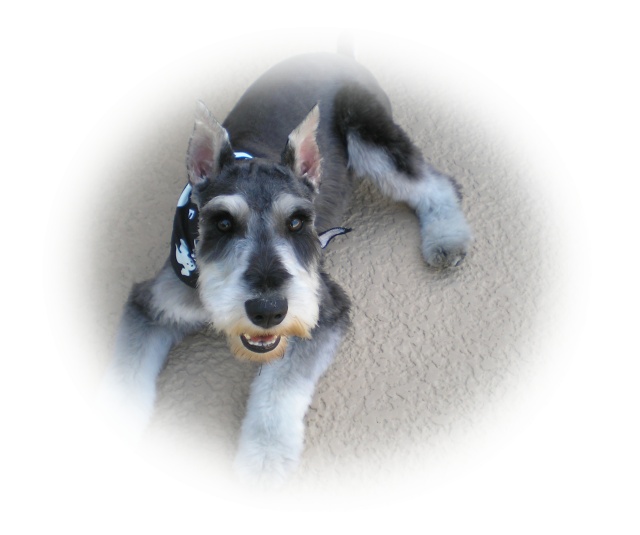 mini-schnauzer limping not able to put full weight on leg
Question
Willy
A couple of hours ago, I walked my 14mon
mini-schnauzer limping not able to put full weight on leg
Question
Willy
A couple of hours ago, I walked my 14mon
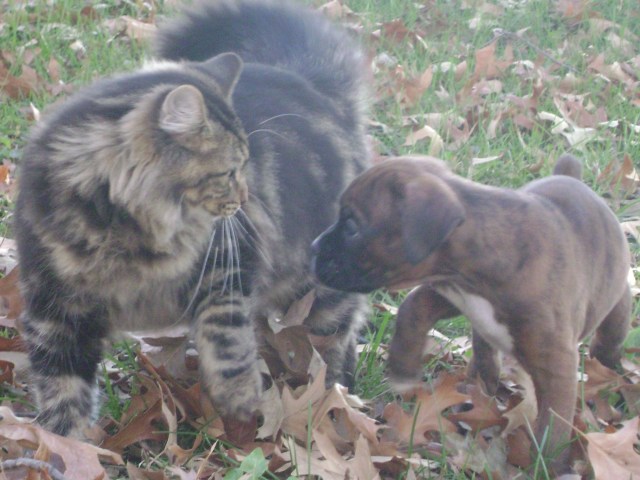 Puppy wont come!
QuestionCapone & Rascal
QUESTION: Help! &nbs
Puppy wont come!
QuestionCapone & Rascal
QUESTION: Help! &nbs
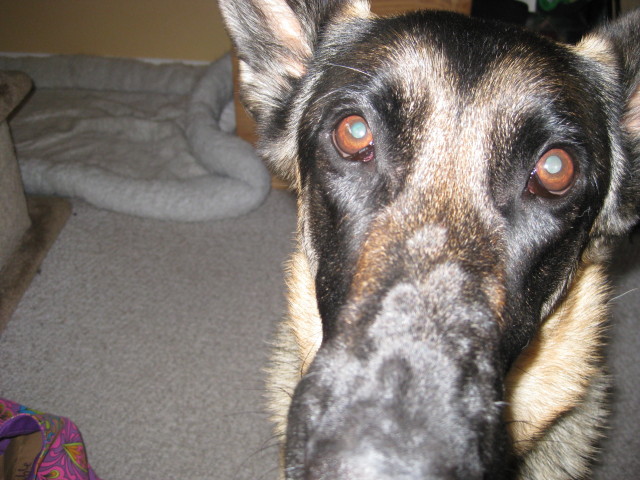 bumps on dogs nose
Question
bumps on nose
My dog has bumps on her nose..Sh
bumps on dogs nose
Question
bumps on nose
My dog has bumps on her nose..Sh
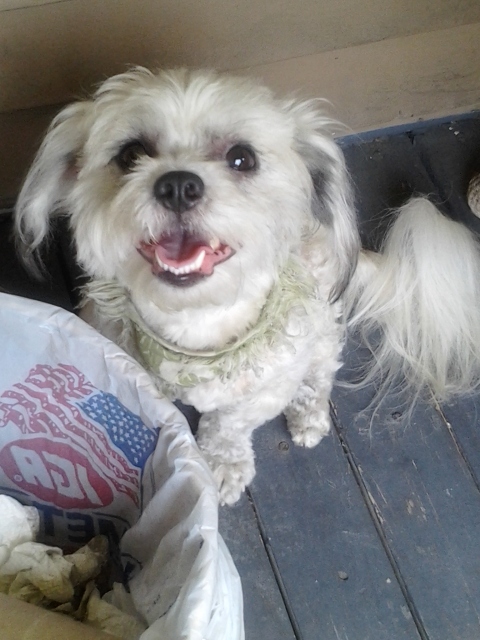 My shitzu/bision (is on facebook)
Question
Barkley
Barkley Layberger ,my dear 2 ye
My shitzu/bision (is on facebook)
Question
Barkley
Barkley Layberger ,my dear 2 ye
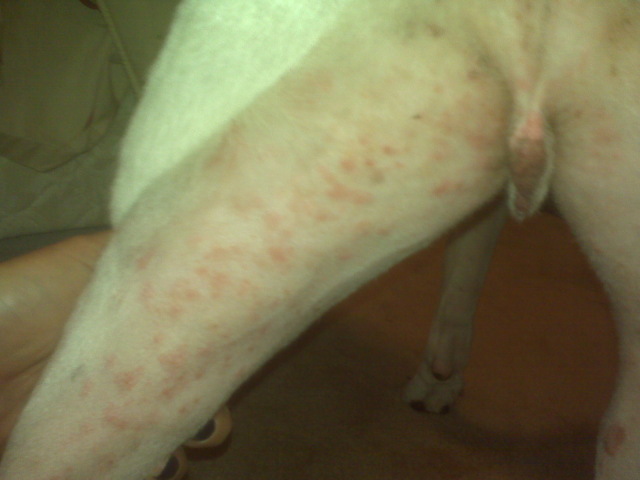 Large dog with possible poison ivy
Question
Guero
My poor dog has led a rough life to date
Large dog with possible poison ivy
Question
Guero
My poor dog has led a rough life to date